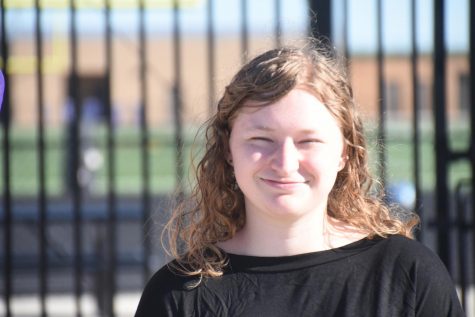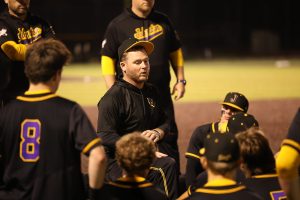Unwrapping Sex Education
The current sex education program is not cutting it, but there are solutions.
February 12, 2020
In recent years, the health program has added curriculum on rape, but it is startlingly misguided. All the health classes show the documentary “The Hunting Ground.” It talks about the prevelance of rape on college campuses and the problems prosecueting rapists. Despite the fact that much of the information is outdated, it was made in 2015, and the fact that many have criticized its accuracy and objectiveness, it has continued to be shown in the health classes. “I honestly cannot comprehend the intention of showing this to high school students other than to scare young women away from college campuses,” Ellie Lashier ‘22 said.
It also has a more severe message being sublimely taught to students. “It almost implies that if you rape someone, nothing will be done,” Lashier said. Because of the intense focus the amount of rape cases in which the rapist is never or only lightly punished, the documentary only conveys despair for female students and a level of knowledge to male students that they could get away with rape.
The school needs to talk about rape and sexual assault. However, this is not the right way. It should be addressed more compassionately, especially considering that some students may have been or known someone that has been sexually assaulted. They should provide resources and knowledge on how to stay safe and who to contact if students are ever in that situation. They can’t just say, “Sexual assault happens and it sucks. Deal with it.”
They need to talk about the importance of respecting others’ personal space and boundaries. Students need to see more concrete lessons on what consent really looks like. It does not suffice to purely have a class discussion where the teacher never actually explains consent.
This scenario highlights many of the issues that the sex education program has. Sex education programs are often biased or lacking in substance. They have failed to change with the population and with the times.
Part of the issue within sex education is the vague state requirements outlined for public schools. “So the state guidelines for any sex education, really the basic guideline is that it is research based, whatever you’re teaching,” Damien Thompson, public policy manager for Iowa Safe Schools, said. “And this can look different at each school district.” Because abstinence is technically research-based, many schools only teach abstinence. Luckily, Johnston teaches more than abstinence, but it is not sufficient for students today.
Even though the state requires very little in the way of sex education, the district can make changes themselves. “As a public high school, you’re also fighting, you know, what is the community gonna tolerate?” principal Ryan Woods said.
However historically, the health curriculum has encountered little resistance from the community. If parents decide they do not want their students to learn about specific subjects, it is within their right to excuse their student from class for that subject. “You know, in my 21 years, I don’t know if I’ve had a handful of parents that don’t want their child to take it because they can opt to not take it,” Health teacher Jackie Sapp said. Ultimately, small numbers of parents should not be able to influence the quality of education for the rest of the student body.
Luckily, Johnston is making their own strides in updating the district’s sex education. Currently, Math/Science K-12 Coordinator Dr. Jyll Johnson Miner and Student Well Being Coordinator Chris Wilson are working on updating the curriculum with health teachers Sapp, Destiny Willer, and Daniel Mennen. While it is encouraging that the district is working on making steps towards a more inclusive sex education program, it is important that they add all of the relevant topics into sex education as well as navigating them compassionately.
Currently the district is focusing on expanding the unit to include more topics. “We want everything science based,” Johnson Miner said. “We want it to be research based and it’s no different really, I think of like a social studies teacher. No one should know what political party you stand for.”
Heather DeBruin ’20 is one student that envisions certain changes in the school’s sex education program. “I want to see less conversation about whether you have sex and more conversation about what to do if you happen to be in that situation,” DeBruin said. “I want to see more conversations about contraception. I want to see more conversations about consent. I mean obviously you don’t have to go into the intricacies about it, but I would just like to see more basics of how to safely have sex.”
Most individuals are going to have sex at some point in their lives. Even if someone decides to wait until marriage to become sexually active, they are going to have sex with their spouse. It is still important for them to know how to have safe sex and to avoid conception if they are not wanting a child at their current stage of life. Lack of this knowledge can lead married couples to have problems in their marriage, college, and sex lives.
Other individuals are not going to wait until marriage or even to graduate high school. That is okay too. Their choices are valid and no less respectable. These individuals deserve just as much knowledge about how to be safe as any other student.
Currently, the school has some issues with how they frame sex in the classroom. Lashier has had a few specific scenarios in her health class. “[One] young man said that a woman loses her value to future partners by having sex with other men,” Lashier said. “When that disagreement turned to the fact that the statement wasn’t applied to guys, it was stated that guys love sex so much that it’s different.”
She had a friend in the class who she knew was sexually active and was aware of how the discussion could hurt her. “I understand the need to let every voice be heard in discussion,” Lashier said. “But when we start discussing the value of a person … that is so damaging and dangerous.”
Because many reasons for abstinence are religious-based, schools should refrain from only or mainly teaching abstinence. Not all students will share the same beliefs and it is unconstitutional and irresponsible of schools to only teach according to one demographic’s beliefs. The school needs to include explanations on how to safely have sex in various situations, including when one is seeking to become pregnant and when one is not.
In order to avoid unwanted pregnancies, the school needs to provide education on various forms of contraceptives for various individuals and couples. The typical contraceptives are not right for everyone. “So we were not educated about contraception, or consent, or what like a healthy interaction looks like,” DeBruin said. “We were given a website, and [my teacher] basically said, ‘Here, if you want to know about contraception, you can paste this guy into Google and have fun.’” This indifference to adequately teaching about contraceptives is inherently dangerous for students.
Lack of education on contraceptives leads to increases in teenage pregnancies. In the article “Abstinence-Only Education and Teen Pregnancy Rates: Why We Need Comprehensive Sex Education in the U.S” by Kathrin F. Stanger-Hall and David W. Hall, they report surprisingly stark statistics about schools that teach abstinence until marriage. Schools that cover abstinence as part of a comprehensive curriculum averaged 56.36 teen pregnancies per 1000 girls from ages 14-19. Schools that stress abstinence until marriage averaged 73.24 teen pregnancies per 1000 girls from ages 14-19. Teachers and administrators consistently say that they teach abstinence to protect students from life-long consequences, but it hasn’t been proven to be as helpful as desired.
One group of individuals that specifically needs more inclusive sex education is LGBTQ+ students. They are routinely left out of discussions on sexual health, often being ignored completely. LGBTQ+ individuals are deserving of an education that helps them stay healthy and safe through sex. Gay, lesbian, and trans individuals in relationships are not provided any trustworthy guidelines for safe sex. They are forced to resort to whatever online resources they can find or shaky advice from friends. This can lead to the spread of sexually transmitted diseases (STDs) and to physical or emotional damage.
Even when schools advertise that they provide LGBTQ+ inclusive sex education, they often leave out members of the community. They typically focus on the stereotypical “gay people.” Which basically means gay, lesbian, and trans individuals to the larger community. However, asexual, aromantic, pansexual, bisexual, nonbinary, gender-fluid, agender, and other identities are all important as well.
One example of how exclusion can severely affect the mental health of students is that of asexual students. Being asexual means that an individual has no sexual attraction to anyone of any gender. Not knowing that asexuality exists, many individuals feel broken and hopeless for their future.
The solution for this is to have schools begin to teach students about various sexuality and gender identities. When students see themselves represented in the classroom whether or not they already knew their identity, they are likely to feel more at ease with themselves and more connected to their community. Feeling connected to a community is a major factor in happiness levels. It will also foster understanding and acceptance of LGBTQ+ students in both teachers and students.
In order to avoid another generation being negatively impacted by lack of awareness about basic sex education, schools need to adopt inclusive, scientific, and helpful programs that teach safe sex to everyone. “Because they say that they’re preparing us for the real world in this place, well in the real world, we’re gonna have sex,” DeBruin said. “Congratulations.”






Mckenna S. • Feb 20, 2023 at 12:06 pm
I realize that I am three years late on this one but it’s caught my interest and I’d like to follow up on it if possible. This was written in 2020, has anything come of it? I am a senior and it was quite worrying when I read this that Johnston teaches Sex Education this way. Especially because me and my friends are LGBTQ+, and I worry about them not getting the knowledge they need to have safe sex. I have got almost all of my sexual education from online and I don’t want my friends to have to go sifting through all kinds of information not knowing what’s wrong or right.